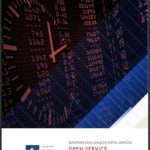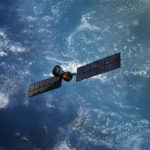
These quarterly reports provide the public with the latest information on the Galileo Open Service measured performance statistics, in particular, on parameters such as: Read more…


These quarterly reports provide the public with the latest information on the Galileo Open Service measured performance statistics, in particular, on parameters such as: Read more…
The first Galileo User Assembly is set to take place in Madrid on November 28-29. The event will provide Galileo and EGNOS users with the opportunity to discuss their needs, share their experience and provide feedback on EGNSS performance.
One year after the launch of Galileo Initial Services, in December 2016, EGNSS users will gather for the first Galileo User Assembly in Madrid this November. On the first day of the Assembly, Galileo and EGNOS users will participate in the first ever EGNSS User Consultation Platform (UCP), broken into four thematic groups – Transport, Mass Market, Professional and R&D. The participants in the thematic groups will then discuss their findings in a plenary session, to be held on the second day of the Assembly. Read more…

The short answer is that satellite clock failures should not directly impact any users of the Galileo or IRNSS satellites. In the event of all clocks (primary and backup) failing on a single GNSS satellite, the satellite becomes unusable. Read more…
Europe’s Galileo satellite navigation system has undergone its first performance report since it started work at the end of last year, and it passed with flying colors.
The European GNSS Agency, GSA has published the first of its regular quarterly performance reports on Galileo. This European GNSS (Galileo) Initial Services Open Service report, now available online, covers the first three months of 2017 and documents the good performance of Galileo Initial Services to date.
The report shows the 11 satellites then operating in the Galileo constellation were able to provide healthy signals 97.33 percent of the time on a per satellite basis, with a ranging accuracy better than 1.07 m and disseminating global UTC time within its signal to within 30 billionths of a second on a 95 percentile monthly basis. Read more…

Following the Declaration of Initial Services in December 2016, the GSA will publish a new Galileo IS OS report after each quarter. These quarterly reports aim to provide the public with the latest information on the Galileo Open Service’s performance. Read more…
The Disrupt Space 2017 brought the most promising space startups to meet with top investors and executives. This two-day event took place in Berlin and was fueled with business meetings, inspiring keynotes and hands on activities to foster collaboration towards building a sustainable space economy. Our colleague Vera Pinto Gomes* was on the Summit and presented the main highlights on the current and future status of EU space programmes that will benefit start-ups:
The unique Galileo Public Regulated Service (PRS) offers a dedicated authenticated and encrypted service for governmental authorised users in areas such as public safety and security, critical infrastructures, and defence. The PRS session at the Munich Satellite Navigation Summit on 16 March provided an overview on the current status of PRS implementation in Europe and a glimpse of its potential applications.
“Integrity is a major driver for backup systems for GNSS,” said Dr. Stefan Baumann of IABG and moderator of the PRS session. He noted that the capabilities of PRS brought authorised users a more reliable and robust positioning, navigation and timing (PNT) system. Read more…